In 2023, America’s workforce stands at a fork in the road.
Employers struggle to find skilled talent as open positions crucial to our society go unfilled. Our current postsecondary education system often hobbles students with massive debt and places them on career paths that didn’t require a degree in the first place. Still, many workers are shut out of jobs because they lack degrees or cannot access the education needed to meet their full potential.
So where do we go from here? Stick with the status quo or find a better way?
The answer is clear. We need to create more education pathways that better serve all learners and embrace a bottom-up approach that considers each person’s unique gifts. This would allow people to discover their talents in a way that contributes to our economy and would create a skilled workforce that excites hirers.
To do this, employers must empower themselves to shed outdated norms that rely on degrees and years of “relevant experience” and instead focus hiring practices on aptitudes and skills. This would propel careers and industries forward because more people would be allowed to contribute in a way that benefits themselves, employers, and the economy. Some companies are already charting this path by investing in their employees and dropping degree requirements, but challenges and opportunities remain.
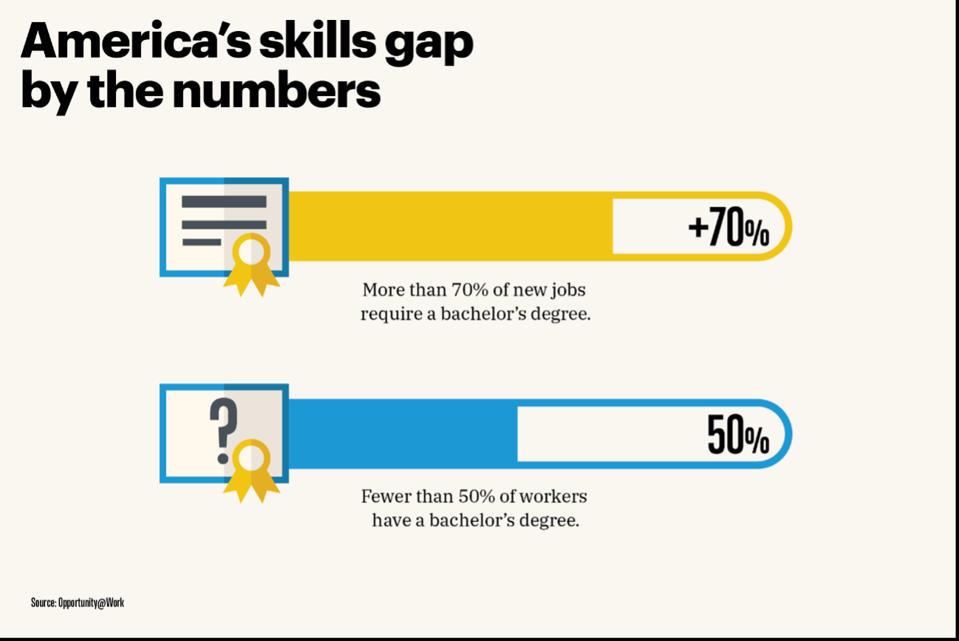
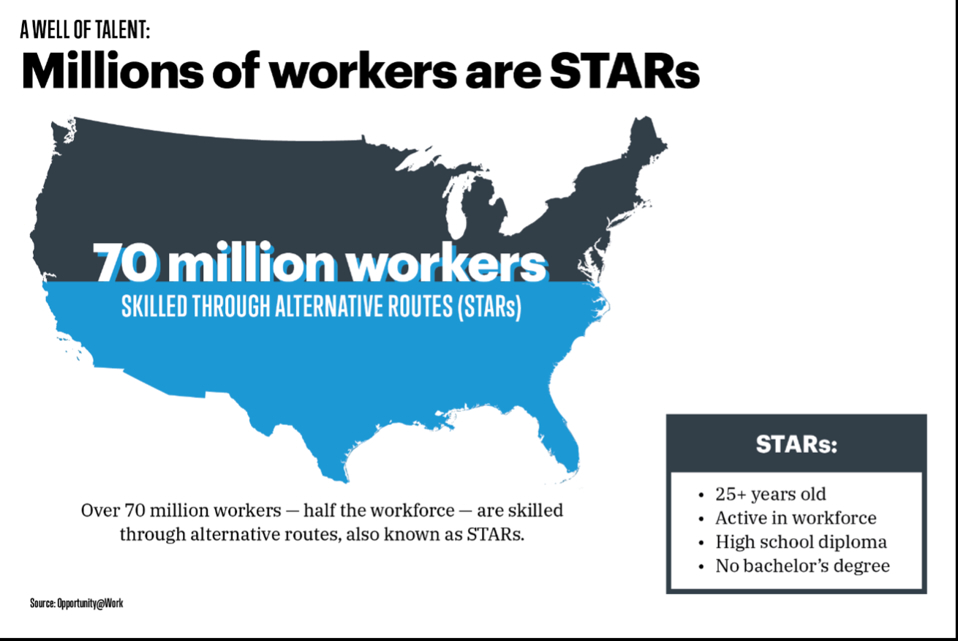
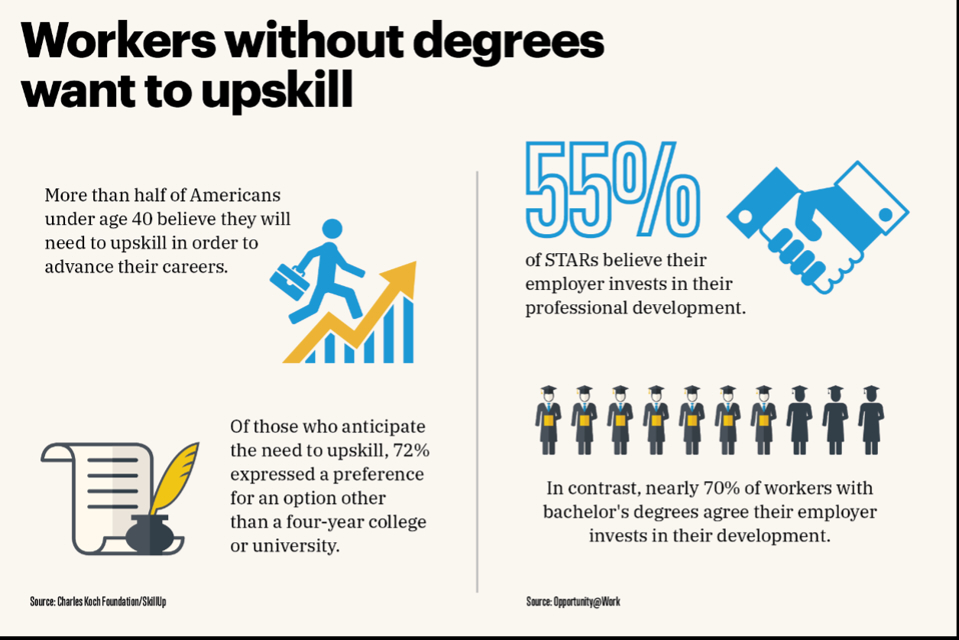
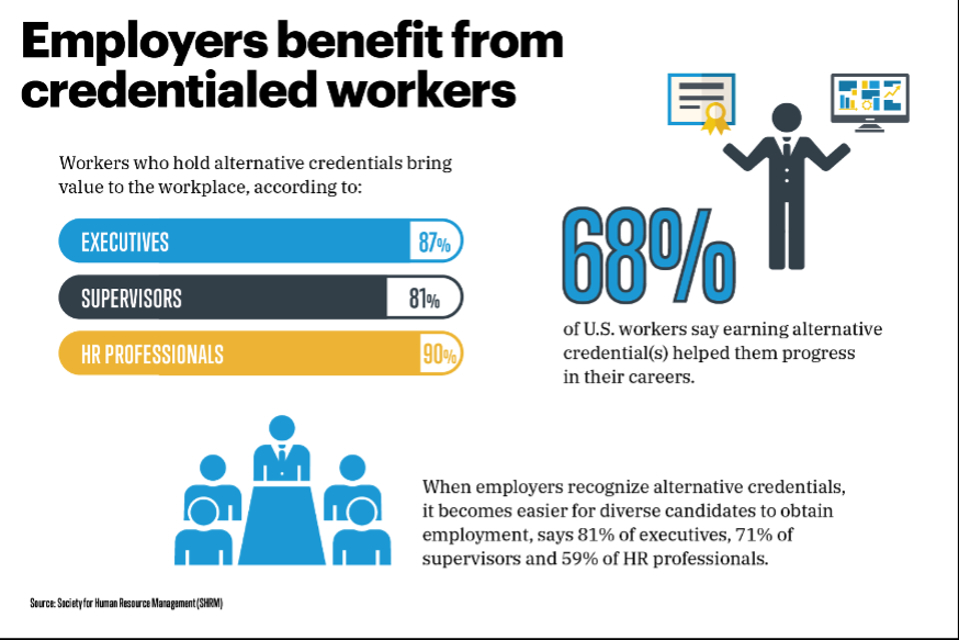
Opportunity@Work, SkillUp, and Society for Human Resource Management are partners of the Charles Koch Foundation. The Charles Koch Foundation is part of the Stand Together philanthropic community.
Learn more about Stand Together’s efforts to transform the future of work, and explore ways you can partner with us.
***
This article originally appeared on Forbes BrandVoice.
Sign up for Stand Together's Rethinking Work & Learning newsletter to get the latest stories, ideas, and trends on the future of employment.

Here’s how to bridge the disconnect between employers and employees.
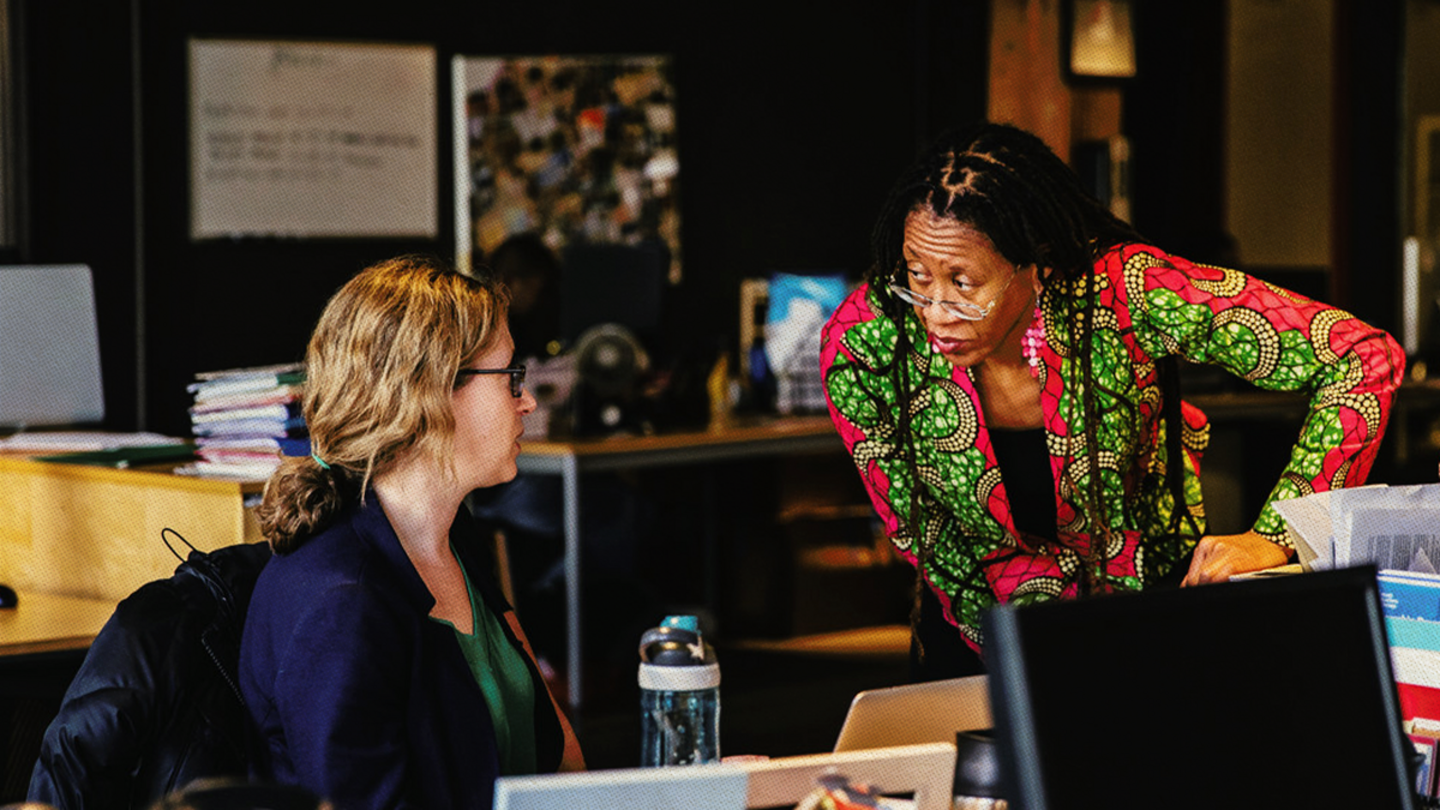
Lessons learned from Colorado.
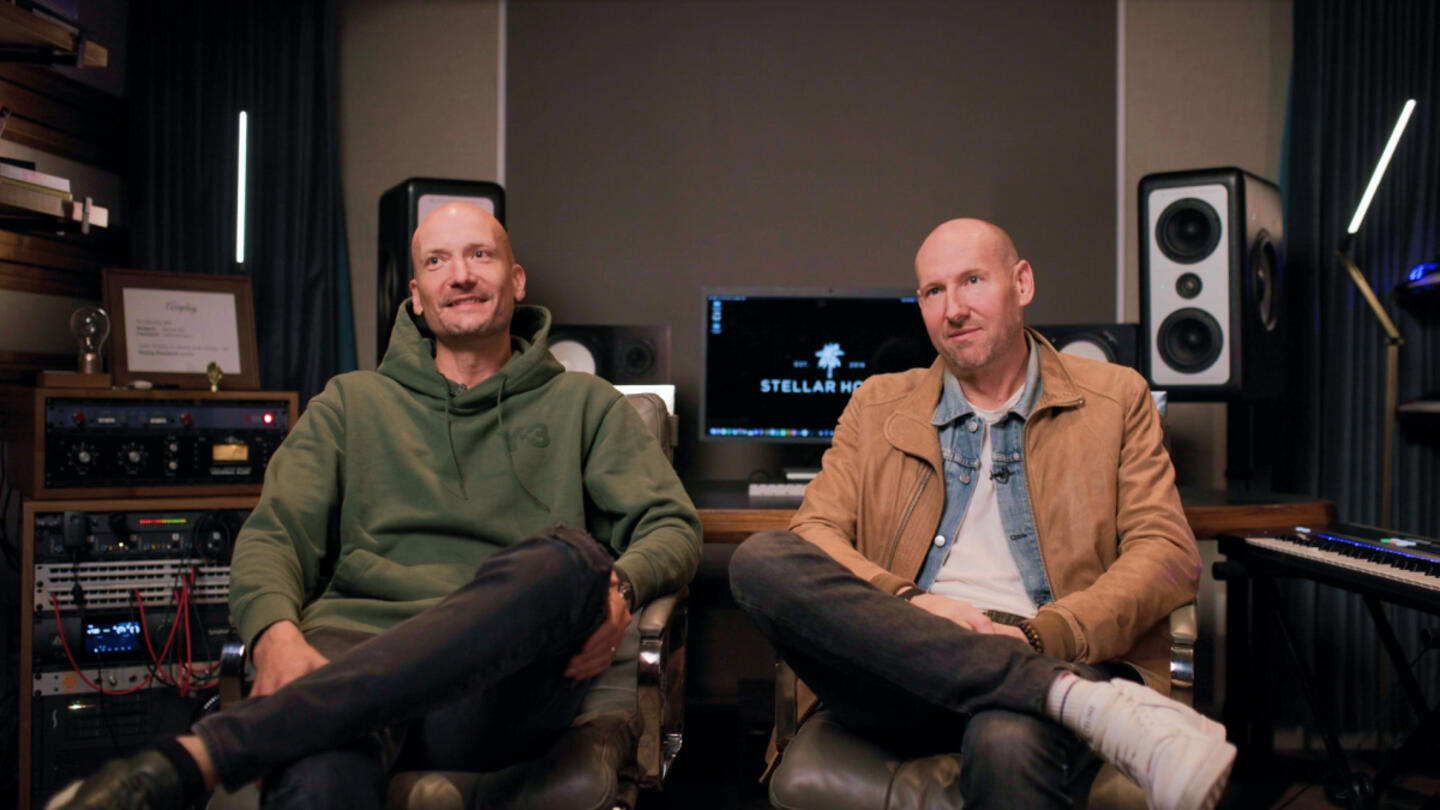
Could a program built to develop music talent change the way we think about education?

How to help the talent of today fill the jobs of tomorrow.
